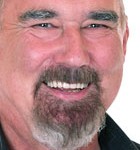The key to healing in any context is the ability to make changes. If you can’t change the way things are, you’re stuck with something you don’t want. To heal disease, heal finances, heal work, relationships, whatever you are struggling with in life, you need to change.
Yet change is one of the most feared and resisted aspects of living—ask any coach or psychologist. Even when a person says they consciously want change, often the resistance it at a deeper level.
I’ve put together a few thoughts on change which I hope will be enlightening and helpful.
Working to a success formula
It is possible to structure the need for change in one’s life into a sequence of events that might be called a “Successful Change Formula”.
Aristotle had one; he said that there are three basic steps that you must take to get what you want out of life:
1. Understand that you can achieve success
2. Define what success represents, for you
3. Organise your life around its achievement by making the necessary changes
Don’t under-estimate the value of these simple steps because here you have the ultimate success formula. It is the secret that everyone who has ever been successful, in any field of endeavour, has used.
Properly adhered to, this will ensure far more efficacious actions than most people usually engage in.
However, I’d like to suggest something a little broader and more modern. Success is seen in terms of decisive change. Obviously, if you haven’t got what you really want, you need to change something. But what? It is vital to recognize accurately what it is that holds you back. Then remedy it. Dealing with the wrong problem will lead to failure. So this is pretty important stuff.
The formula given here will help you. All success and improvement can be mapped in these terms, whether the individual has consciously applied them or not. Obviously, knowing and willing application of its steps will bring a far higher success rate than mere unknowing and random encounters with one or two of the steps. Continue reading

